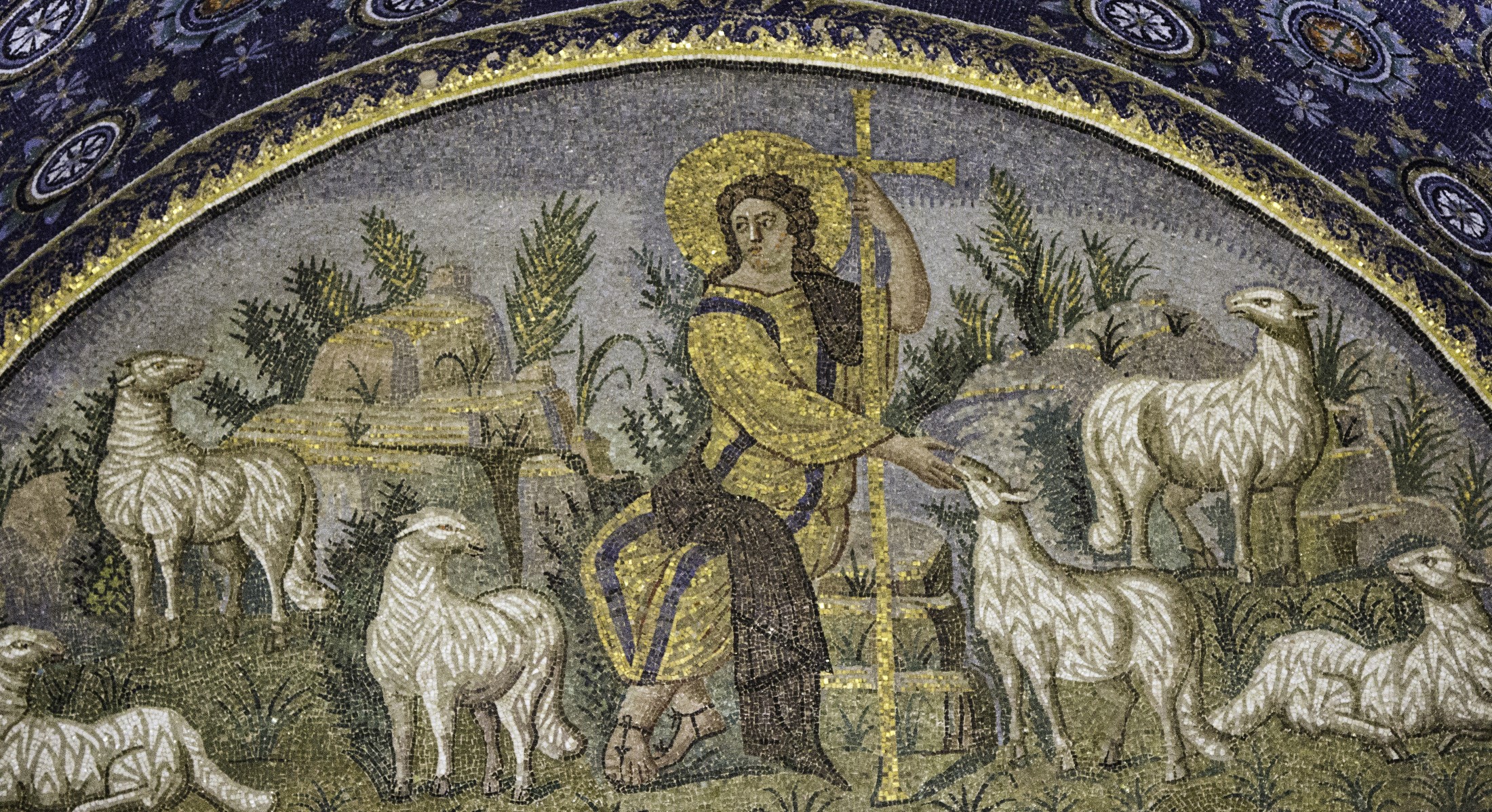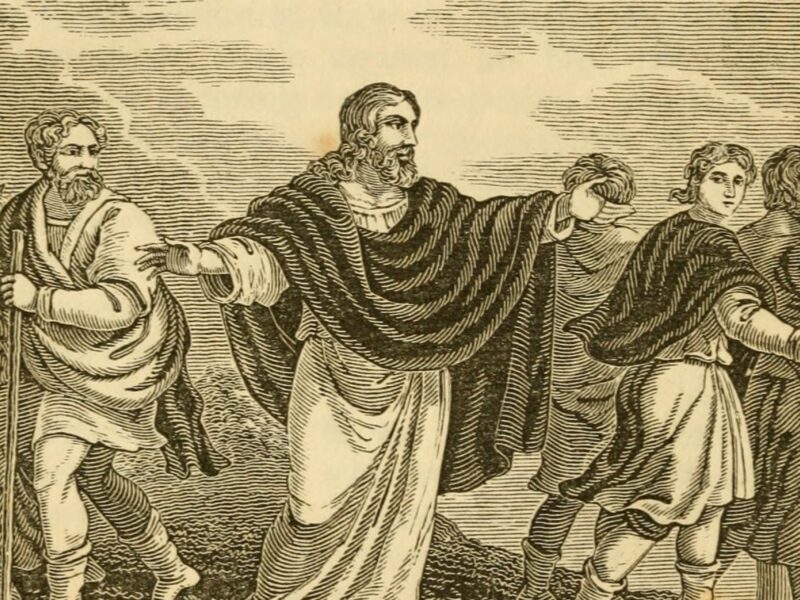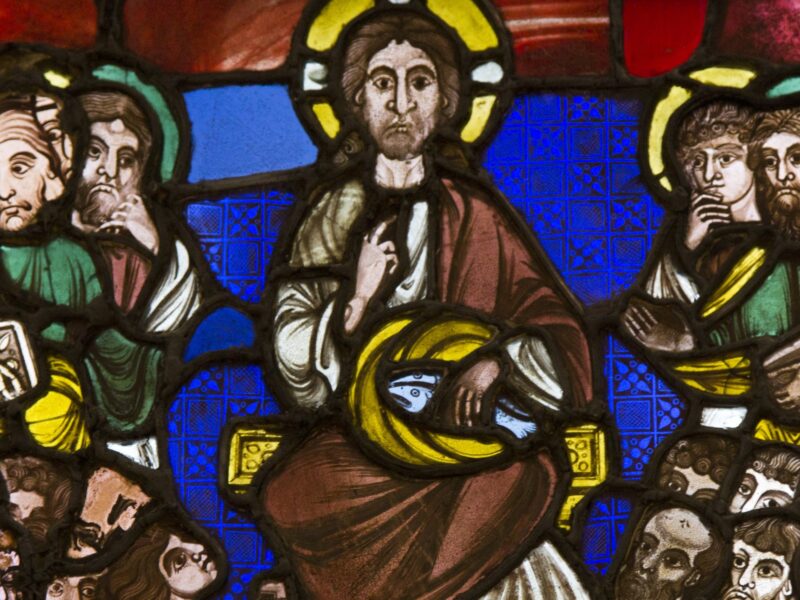
Listen to His Voice
Fourth Sunday of Easter. The Archbishop of Liverpool reflects on the concept of vocation as he prepares for retirement.
Good Shepherd Sunday has a special meaning for me this year as I will be handing over my responsibilities as a shepherd to my successor as Archbishop of Liverpool. This will take place during the Mass of Installation and Archbishop John Sherrington will sit in the cathedra and receive the pastoral staff from me. My impending retirement has led me to reflect on the idea of vocation. In the past the emphasis on this Sunday was to pray and appeal for vocations to the priesthood and religious life – and this is still the case as there is an enormous need for people to offer their lives in service of others. Our prayer is that the Holy Spirit will stir the hearts of men and women to ask themselves whether God is calling them to be priest or women and men religious. But here is more to the idea of vocation than this rather narrow view.
St John Paul II helped Christians understand that it was by baptism that we all receive a call from God, and he described this in a wonderful phrase, ‘the universal call to holiness’. This is the framework within which specific vocations such as teacher, mother, priest and so on are placed. To put it very simply, all the baptised are called by God, not just monks and nuns. St John Henry Newman said that we are called to ‘some definite service’. If we agree with this, then being holy involves doing something, and it is Pope Francis who gave some direction on how to be holy. Pope Francis, right from the beginning of his papacy, said we should consider how we could become ‘missionary disciples’, a loaded phrase if ever there was one. Disciples are followers, like sheep who follow the shepherd, as they still do in some parts of the world. In our culture shepherds tend more to herd than to lead. A missionary is a person who has been sent by God. We are sent to the world to bring the good news of Jesus’s resurrection. Some will do this by preaching but most will do this by living as Jesus’s disciples according to his teachings and reaching out to those in need. God’s love is channelled through us and that is a clear sign that we are followers of Jesus and have answered his call to be missionaries. Being called implies being sent. This is nothing new. St Paul begins the First Letter to the Corinthians by saying, ‘I, Paul, called an apostle’. He is not saying that his job title is an apostle. What he is saying is that he has been called by God to be sent out. An apostle is one who is sent, the word coming from Greek, whilst ‘missionary’, from the Latin, has much the same meaning.
Undoubtedly, living out our baptismal calling is very hard. When we are immersed in the affairs of the world, we can lose sight of our purpose and become embroiled in the affairs of everyday life. It is difficult to think of ourselves as having a vocation. It is so easy to be overwhelmed by issues and problems that often come to us from every direction that we forget that we are recipients of the Holy Spirit who is alive in each of us.
One of Pope Francis’s gifts to the church is synodality. Synodality is a further unfolding of our baptismal vocation where we acknowledge that the Holy Spirit which we received at baptism finds ways forward when we were at an impasse. Specifically, at recent Synods of Bishops in Rome, topics were raised in ‘conversations in the spirit’. During these prayerful conversations deep listening took place rather than debate or confrontation on difficult matters of church teaching and practice. In our local churches this same method is being applied to finding new ways forward for the church and its mission. All baptised Christians are endowed with the Holy Spirit and can and should realise their vocation in this manner.
Jesus reminds us in todays’ gospel that we, his sheep, listen to him. In our time the Spirit of
Jesus speaks to us through the church and each other.
Jesus says, ‘My sheep hear my voice, and I know them, and they follow me.’
The Lord continues to call us to holiness in many diverse ways. It is up to us to learn to listen to his call.
Readings: Acts 13:14, 43b-52 | Revelation 7:9, 13a, 14b-17 | John 10:27-30



Sergio
The idea of vocation is to become “missionary disciples”, and they need to be immersed in the societies and cultures. St Paul was a man who was immersed in his time and so could understand and communicate very well with those around them. In the same way, all of us are sons and daughters of our social environments and of the 20th and 21st centuries. Today. We cannot be “missionary disciples” of the past, the past is already dead. We only can be among those living today in different cultures. The church (community of believers including the institution) should reflect more what are the models to be missionary today. Some of the models of the past are not attractive for most people in many societies and cultures today. I had a relative who was a lay Dominican, and I know a little bit about St Domingos. These models create the sense of continuation and tradition that we get inspiration, but they are still connected with environments and moral codes of the past particularly in Europe. I doubt if these models will make the missionaries today be able to communicate the good news as St Paul did at his time. Are “the others” deaf, or missionaries speaking and living up an alien language? We should not abandon the models of the past, but should not concentrate vital roles and power in those who follow these models of the past. This creates misunderstanding, outcasts and exclusions between us and “the others”, as we need to be more like “them”. We don’t need only to listen more, but to listen and understand more, and we cannot understand what we don’t experience and live.
Michael
Thank you Bishop Thomas and Sergio.
To hear how discerning vocation is still part of my following the Lord and to hear it from one who is ending a long period of episcopal ministry is an empowering message for me.
There is nothing fixed or final apart from Jesus who calls and sends us.
And how refreshing Sergio it is when you wake me to this calling of Jesus just as much in our time and complex place.
It is true for me, when I hear I cannot be what I cannot see.
And when I see Jesus and the Kingdom breaking out in the lives of women and men that bring peace and a willingness for self sacrificing love I pray I won’t be afraid to follow Him there also.
He is there too with His crook and His Staff.